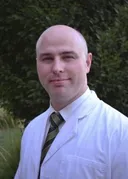Physician Assistant Career Advancement Through Higher Education and Certification

123RF.com/lightwise
I avoid the hospital as much as I can. As a primary care provider, my goal is to keep patients out of the hospital. But this time I wasn’t there visiting a patient, and I wasn’t there for myself. It was my mother.
Her health had apparently been failing for some time, yet she never told anyone. She had lost weight on and off throughout her life, so no one really paid attention to her increasingly gaunt appearance. But looking back, it should have been hard to miss.
I was raised in a home where natural remedies were favored over prescriptions, folk wisdom over modern medicine. You didn’t go to the doctor unless you were dying. At this point, however, my mother was dying.
I remember feeling so helpless and out of my element pacing those cold hospital corridors. Despite my medical training, there wasn’t anything I could do. Ultimately, there wasn’t anything anyone could do.
Waiting on the World to Change
For several years I had been contemplating a career change. Being a primary care PA is a tough job. You carry all the weight of a broken healthcare system in addition to the constant self-doubt and the specter of a fatal mistake just around the corner.
When I decided to become a PA as a college freshman, the thought of becoming a medical doctor had never entered my mind. It wasn’t until I was interviewing for PA programs as a junior that I first considered medical school. There are many days when I wish I had made a different decision.
I’ve done my best as a PA, and I’ve always taken pride in my work. Alleviating the suffering of another human being is a sacred stewardship. But I couldn’t shake the feeling that I needed more. I wanted to do more, be more. It was on one of those long, lonely nights in the hospital with my mother that I decided I needed a change.
Can I Take a Mulligan?
I considered going back to medical school. But unfortunately, I would have to start all over without any recognition for the decade of training and experience I had accrued in the trenches of primary care. I started looking for some sort of bridge program. Surely there was an established path for a seasoned clinician to move up in the ranks of medicine. Lake Erie College of Osteopathic Medicine (LECOM) claimed to have such a program.
Could I do this? What would it cost? What would it mean for my wife and two children? The more I researched LECOMs supposed PA to DO bridge program, the more disappointed I became. I wasn’t worried about the work. It was the opportunity cost. Calculating the lost wages on top of new student loans led to a price tag of nearly a million dollars. There had to be a better way to advance my career and grow as a clinician. Then I found it. I found a program that would honor my preparation and experience as a PA while helping me grow and advance my career. I would not become a Medical Doctor but a Doctor of Medical Science.
A Medical Education by Any Other Name
The DMS program, as it would be called, had only been in existence for a few years. It would include another 2 years of clinical didactics with weekly case discussions and lectures with specialist physicians. Our textbooks and exams would be built around study materials for internal medicine physicians. I could go on to select a cognate in primary care and further focus on the topics most relevant to my day-to-day work.
As I write this, I’ve now been a doctoral student at Lincoln Memorial University for the last 6 months in their Doctor of Medical Science program. It’s been a thrilling experience and I’ve grown as a person and as a healthcare provider. I’m more confident in the decisions I make. And I’m confident that my patients will benefit as well.
While the cost of this program would be far less than a million dollars, it still wouldn’t come cheap. It was going to set me back $35,000. Newer editions to the DMS crowd, or DMSc as some schools now style it, would cost significantly less. Maybe even 40% less. But none of them would offer the same experience.
What will be the return on my investment? I don’t really know. But I don’t think it can be measured in strictly monetary terms. Most clinicians are paid on productivity, at least in part, and I don’t see this degree garnering any special attention from payers--at least not yet. An argument could be made that a better-educated provider can manage patients more efficiently, but it probably won’t be paying for itself anytime soon.
Specialty Certificates for PAs
What other ways are PAs advancing their careers? The National Commission on Certification of Physician Assistants (NCCPA) offers what they call a CAQ--Certificate of Added Qualification. These optional certifications are currently only offered in 7 specialty areas: psychiatry, cardiovascular and thoracic surgery, emergency medicine, nephrology, hospital medicine, pediatrics, and orthopedic surgery.
The NCCPA reports that PAs seek specialty CAQs for two reasons: self-fulfillment and to boost recognition and compensation. The same could be said for PAs that go on to earn a doctoral degree.
To obtain a CAQ, PAs must accumulate specialty-specific Continuing Medical Education, log 1 to 2 years of experience in the chosen specialty, complete an attestation of knowledge and skills, and finally, pass a specialty exam.
But… Why?
To many, neither a CAQ nor a DMS make much sense. You can be a stellar PA without a doctorate or special certificate, and you could be a dud with both. CAQs have been around longer than the DMS but they’ve not really caught hold. The various Doctor of Medical Science programs, on the other hand, are exploding in popularity.
The healthcare landscape is changing. Some are looking to get out, others are going “all in.” Not all doctors are MDs. Will a DMS behind my name change anything? It won’t bring my mother back, but I believe it would have made her proud. And I hope that with the added schooling, I’ll be better able to save someone else the heartache of losing a loved one prematurely.
Related Posts
